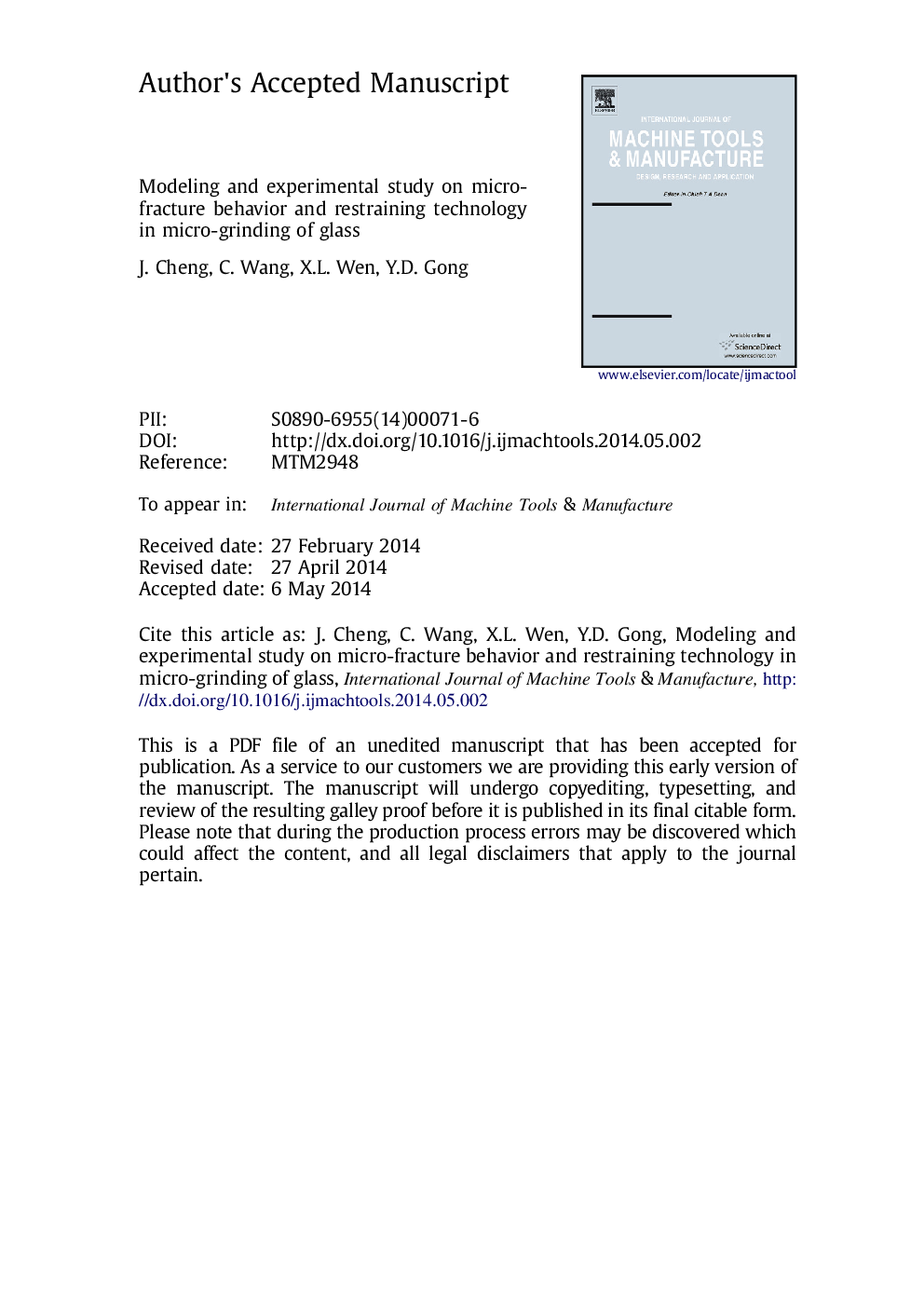| Article ID | Journal | Published Year | Pages | File Type |
|---|---|---|---|---|
| 7173454 | International Journal of Machine Tools and Manufacture | 2014 | 39 Pages |
Abstract
This study presents a new fracture restraining technique for micro-grinding of glass and micro-fracture behavior in micro-grinding of glass is investigated. Penetration depth p0 and loading force Fg of single abrasive are discussed. A predicting model, which quantitatively predicts fracture size lc, is built based on single abrasive micro-interaction theory and elastic strain energy theory. A novel micro-fracture restraining coat, made with resin material, is developed and fabricated onto the work piece׳s surface to provide an extra restraining force for micro-grinding. Experimental machining examples indicate that lcy is reduced from 232.64 μm to 32.61 μm, and a promotion of 50 times productivity is achieved. Moreover, acrylic resin and epoxy resin are tested for different resins, and it is found that epoxy resin coat provides a ductile mode propelling effect, and acrylic resin coat induces a non-uniform effect which causes a large fracture size and its rapid growth. It is demonstrated that this technology successfully restrains the fracture formation during micro-grinding of glass, and this study proposes the analytical model that captures the main trend of lc results in this experiment. Application of this knowledge is expected to significantly contribute to the precision micro-machining industry of hard-brittle materials.
Keywords
Related Topics
Physical Sciences and Engineering
Engineering
Industrial and Manufacturing Engineering
Authors
Jun Cheng, Chao Wang, Xuelong Wen, Yadong Gong,
